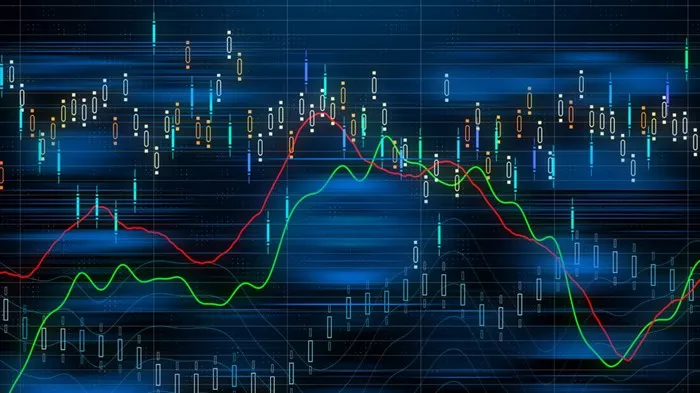In the realm of financial markets, stock futures play a pivotal role in enabling investors to hedge against risk, speculate on price movements, and diversify their portfolios. For those venturing into the world of trading, comprehending the intricacies of stock futures is essential. This guide aims to demystify the concept of stock futures, elucidate their significance, and equip you with the knowledge needed to navigate this dynamic facet of the financial landscape.
What Are Stock Futures?
Stock futures are financial contracts that obligate the buyer to purchase (in the case of a long position) or the seller to sell (in the case of a short position) a specified quantity of shares of a particular stock at a predetermined price on a future date. These contracts derive their value from the underlying stock, allowing investors to speculate on the future direction of stock prices without owning the actual shares. Stock futures are traded on futures exchanges, where standardized contracts facilitate liquidity and price discovery.
How Do Stock Futures Work?
Stock futures operate on the principle of leveraging, wherein traders can control a large position with a relatively small amount of capital. When entering into a futures contract, traders are required to deposit an initial margin, which serves as collateral and ensures performance on the contract. Throughout the life of the contract, traders may be required to meet maintenance margin requirements to cover any losses incurred. The profit or loss on a stock futures contract is determined by the difference between the contract price and the prevailing market price at the time of settlement.
Why Trade Stock Futures?
Stock futures offer several advantages for investors and traders alike. Firstly, they provide an avenue for hedging against adverse price movements in the stock market. By taking an opposite position in futures contracts, investors can mitigate the risk associated with fluctuations in stock prices. Additionally, stock futures enable speculators to profit from both upward and downward movements in the market, thereby diversifying trading strategies and enhancing potential returns. Furthermore, the leverage inherent in futures trading amplifies profit potential, albeit with commensurate risk.
Key Terminologies in Stock Futures Trading
To navigate the world of stock futures effectively, familiarize yourself with the following key terminologies:
1. Contract Size: Refers to the specified quantity of shares underlying a single futures contract. It varies depending on the stock and is standardized by the exchange.
2. Expiration Date: The date on which the futures contract expires, at which point the parties are obligated to fulfill their contractual obligations.
3. Settlement Price: The official closing price of the underlying stock on the expiration date, used to calculate the final profit or loss on the futures contract.
4. Initial Margin: The amount of capital required to initiate a futures position, serving as collateral to cover potential losses.
5. Maintenance Margin: The minimum amount of capital that must be maintained in the trading account to support an open futures position.
Risks Associated with Stock Futures Trading
While stock futures offer opportunities for profit, it is imperative to recognize the inherent risks involved:
1. Market Risk: Stock futures are subject to fluctuations in the underlying stock prices, which can result in significant losses if not properly managed.
2. Leverage Risk: The use of leverage magnifies both potential gains and losses, amplifying the impact of market movements on trading capital.
3. Counterparty Risk: Futures contracts are traded on exchanges and are guaranteed by clearinghouses, but there is still a risk of default by the counterparty.
Conclusion
Stock futures serve as indispensable instruments in the arsenal of modern investors, providing avenues for hedging, speculation, and portfolio diversification. By understanding the mechanics of stock futures trading, individuals can harness the power of these financial derivatives to navigate the complexities of the market with confidence. However, it is essential to approach futures trading with caution and diligence, mindful of the risks inherent in leveraging and market volatility. With a sound understanding of stock futures and prudent risk management practices, investors can unlock the potential for enhanced returns and financial growth in their investment endeavors.
FAQs
Q1: How are stock futures different from stock options?
A1: Stock futures obligate the buyer or seller to trade the underlying asset at a predetermined price and date, whereas stock options provide the buyer the right, but not the obligation, to buy (call option) or sell (put option) the underlying stock at a specified price within a certain timeframe.
Q2: Can individuals with limited capital participate in stock futures trading?
A2: Yes, individuals with limited capital can participate in stock futures trading through the use of leverage. Futures contracts allow traders to control a large position with a relatively small initial margin requirement, thereby amplifying profit potential. However, it’s essential to exercise caution, as leverage also increases the risk of significant losses.
Q3: What factors influence the price of stock futures?
A3: The price of stock futures is influenced by various factors, including the current price of the underlying stock, interest rates, dividends, market sentiment, and macroeconomic indicators. Additionally, supply and demand dynamics in the futures market play a significant role in determining futures prices.


